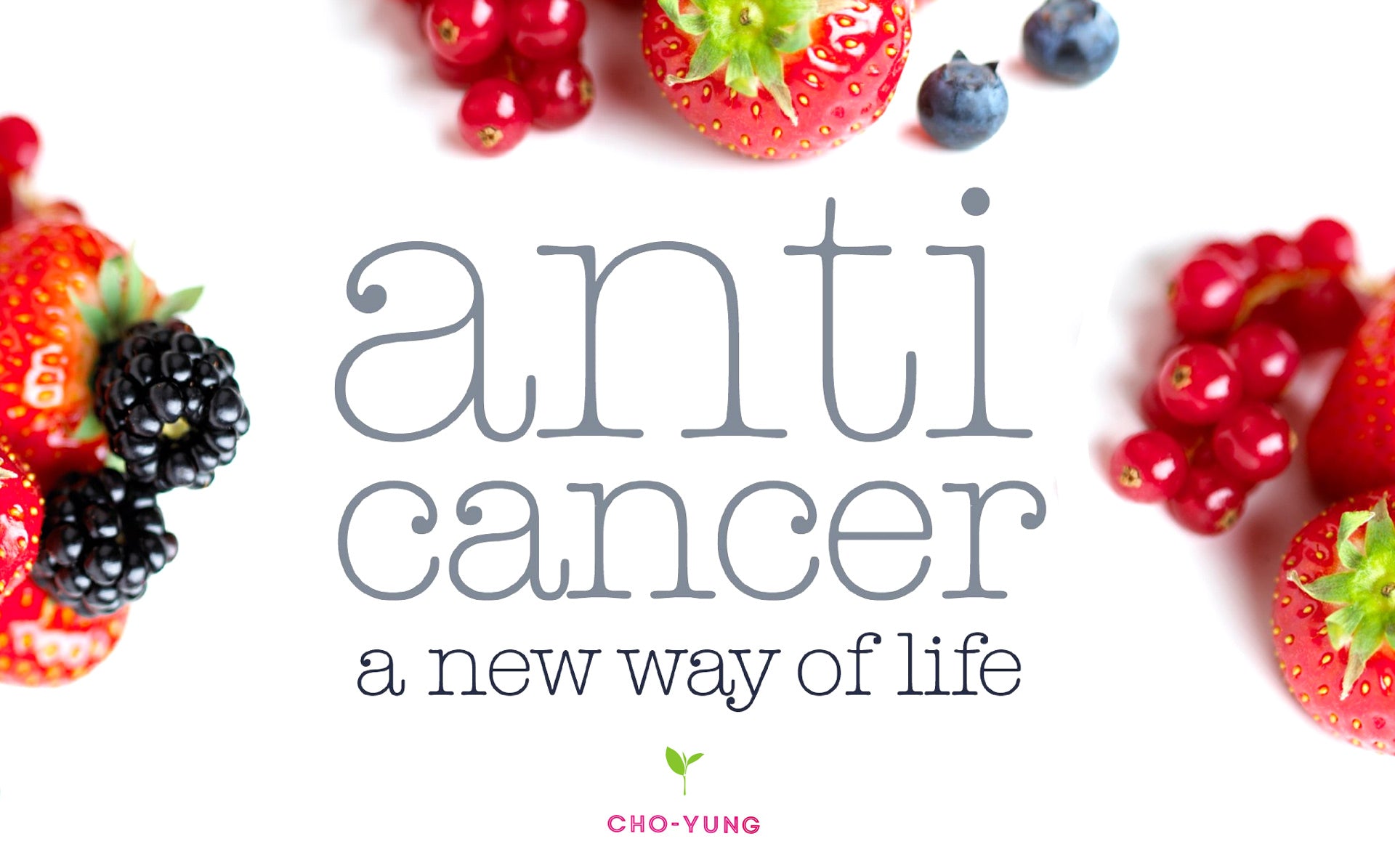Anti-Cancer Foods and Drinks You Cannot Ignore

With modern lifestyles, people are exposed to multiple carcinogenic agents on a daily basis. It is hence no wonder that cancer rates are soaring. To keep far away from this terrifying disease, below is a list of cancer foods that cannot be ignored.
1. Flavonoid-Rich Berries
These berries include currants, cherries, cranberries, hawthorn berries, acai berries, blueberries, blackberries, raspberries and strawberries, and supplements. As powerful antioxidants, flavonoids can be more potent than traditional antioxidants like vitamin C and E, beta-carotene, selenium and zinc. And antioxidants are well-known to be crucial in the prevention of cancer. So pop a berry or two daily as a snack, rather than the nutrition-less sweets, for optimal cancer protection.
Try our Ultra Pure Organic Acai Berry Supplement
Try our Natural Raspberry Ketones Supplement
2. Turmeric
Love curry?
Curry is one of the delicious foods that protect against cancer, if it contains turmeric. This is because turmeric contains the phytonutrient, curcumin, which has been found to be anti-inflammatory and cancer-inhibiting. Studies show that curcumin, in turmeric, can also assist fat burning. Try our organic Turmeric supplement
3. Cruciferous Vegetables
These vegetables include cabbage, cauliflower, broccoli, Brussels sprouts, kale, cress, horseradish, kohlrabi, mustard, radish and turnip. They are beneficial because they contain the phytonutrient, glucosinolates, which has been found to detoxify certain carcinogens and help lower cancer risk, especially colon cancer.
4. Garlic
Garlic contains about 200 biologically active compounds, such as sulfur containing amino-acids, glutathione and cysteine, that have powerful protective functions against cancer formation, growth and metastasis. For the best effect, garlic should be eaten freshly chopped and raw. But if the smell and taste of raw garlic is really intolerable, it could be lightly stir-fried with vegetables, or boiled in soups.
5. Mushrooms
Mushrooms aren't only tasty to eat, they can also protect one from cancer. At least some mushrooms can. Like the reishi (Ganoderma), shiitake and maitake, which the Chinese and Japanese have been using for ages to boost immunity, protect against as well as treat cancer.
6. Yogurt
Various species of probiotics (eg. Bifidobacterium lactis) present in yoghurt have been found to improve immunity and detoxify many carcinogens, including hormones, meat carcinogens and environmental toxins.
7. Spinach
Many people formed their impression of spinach from watching the cartoon Popeye as a kid. But is this green food as wonderful as it is portrayed to be?
Long reputed for increasing power and energy, spinach is also an anti-cancer food because of its richness in chlorophyll and carotene. Besides protecting one from cancer, it is also rich in iron, folic acid, vitamins and minerals, as well as the antioxidant coenzyme Q10 (which has anti-aging properties).
If there's only one green vegetable to be eaten, then it must be spinach.
8. Fiber-Rich Foods
Fiber in plant foods are important not only for healthy bowels, they are also important for preventing colorectal cancer. Fiber facilitates the movement of food through the digestive tract, so there is less time for any carcinogens in one's food to be absorbed, and less carcinogens are produced by the "rotting" food in the gut as it passes through.
Whole grains (e.g. unpolished rice), beans, seeds, lentils and vegetables make rich sources of fiber, so be sure to include them in the daily meals. Colon Cleansing Suplements are also recommended
In conjunction with other natural ingredients, our Cho-Yung PLUS stimulates the digestive system to function properly, but does not simply have a laxative effect – more a regulatory and protective effect.
9. Bee Propolis
Propolis is a substance produced by bees to protect themselves and their hives against bacterial, viral and fungal infections. Rich in bioflavonoids, vitamins and amino acids, it has been found to be immunity-enhancing and cancer-preventing.
10. Oolong - Cho Yung Tea
This tea is a natural gift that is rich in antioxidants. It also contains vital vitamins and minerals such as calcium, manganese, copper, carotin, selenium, potassium, and vitamin A, B, C, E, and vitamin K. Additionally, it contains folic acid, niacinamide, and other detoxifying alkaloids. It is developed in semi-fermented processing, which provides the tea with numerous polyphenolic compounds and adds even more valuable health benefits. Oolong tea also contains caffeine, theophylline, and theobromine (similar to caffeine), which on consumption, may stimulate the nervous system.
The polyphenolic compound in oolong tea is also responsible for the removal of free radicals in our body as it functions as an antioxidant. Therefore, consuming daily doses of oolong tea can help people against the potential harm that these free-moving cells often pose to the body, including cancer, atherosclerosis, stroke, rheumatoid arthritis, neurodegeneration, and diabetes.
Our exclusive blend of tea is made to an ancient 400 year old traditional recipe. In addition to premium oolong tea, we include a blend of traditional herbs and plants to help purify the body's cells and support the essential organs through the digestive process.
Among the 100% natural ingredients we include lotus leaf to optimise digestion, and poria to support the internal organs. One further, key ingredient is Gynostemma Pentaphyllum (also known as Jiaogulan or Southern Ginseng), an herbaceous plant indigenous to Japan, China and Southern Korea. It has powerful anti-oxidant properties similar to ginseng, and is often referred to as 'the immortality herb', as its consumers can often live to a very old age.
This special herb, unique to the Cho-Yung blend, has a calming effect and helps to regulate the digestive system. Once these ingredients have been blended with the oolong tea leaves, we then seal each tea bag in foil packets to lock in the freshness, and pack into handy pouches, ready for delivery to your door for you to enjoy!
CHO-YUNG TEATOX IS THE REVOLUTIONARY SOLUTION THAT’S HELPED THOUSANDS OF PEOPLE WORLDWIDE TO IMPROVE THEIR HEALTH IN A SAFE AND EFFECTIVE WAY!
Also in News

Gym Goers, Bodybuilders, Boxing Clubs and Athletics Love The Benefits Of “The Feel Good Drink”

How To Eat Less And Not Feel Hungry Or Your Money Back!

Sitting Is Really The New Smoking, and it's Killing You ! [infographic)
Ever feel like your 9-5 is killing you? Well, if you spend all that time sitting down, it just might be.
Indeed, numerous studies indicate that the health impacts of continuous sitting cannot be reduced through daily exercise. Even in physically active people, sitting increases their health risks. And this risk has been found to increase with every two hours of time spent sitting.
